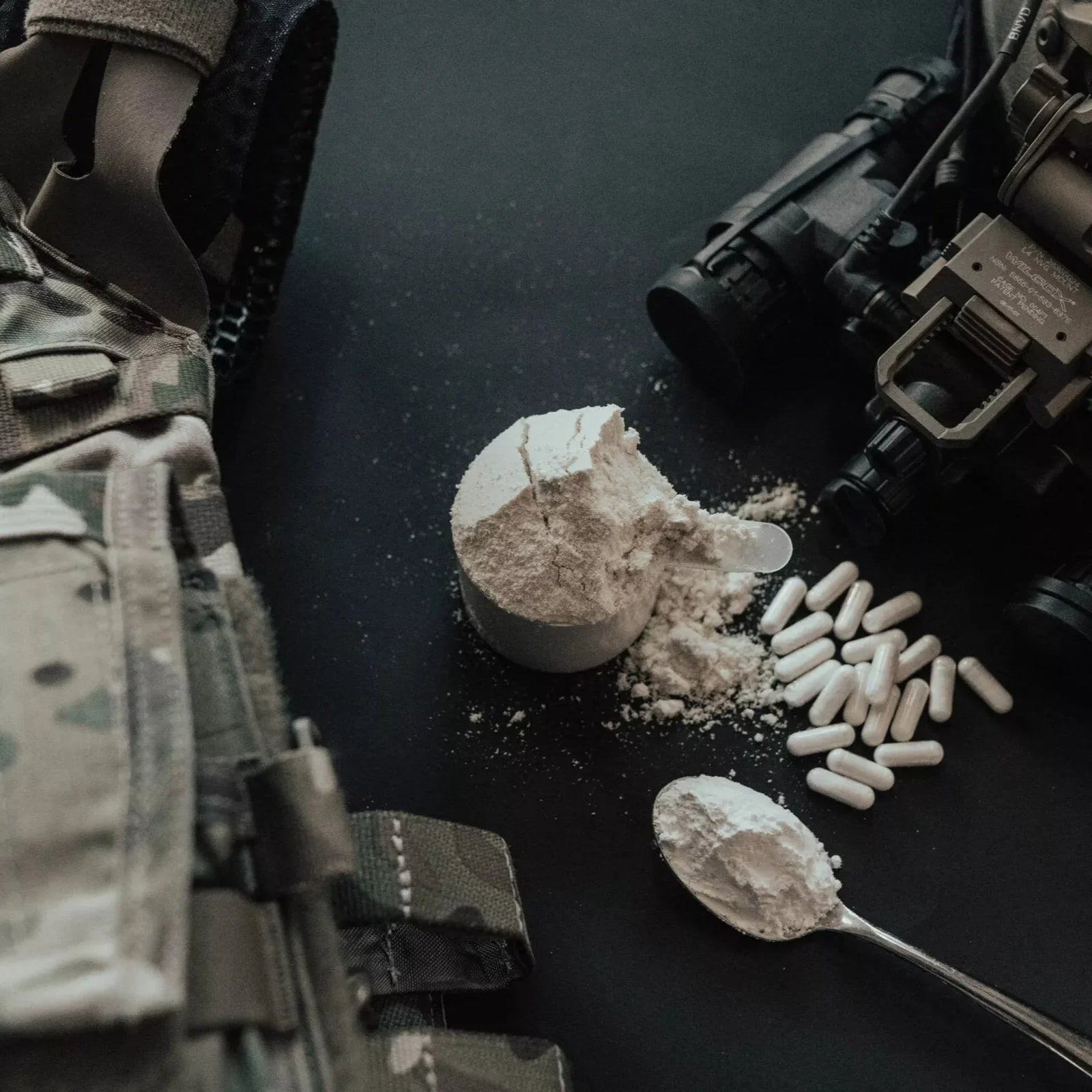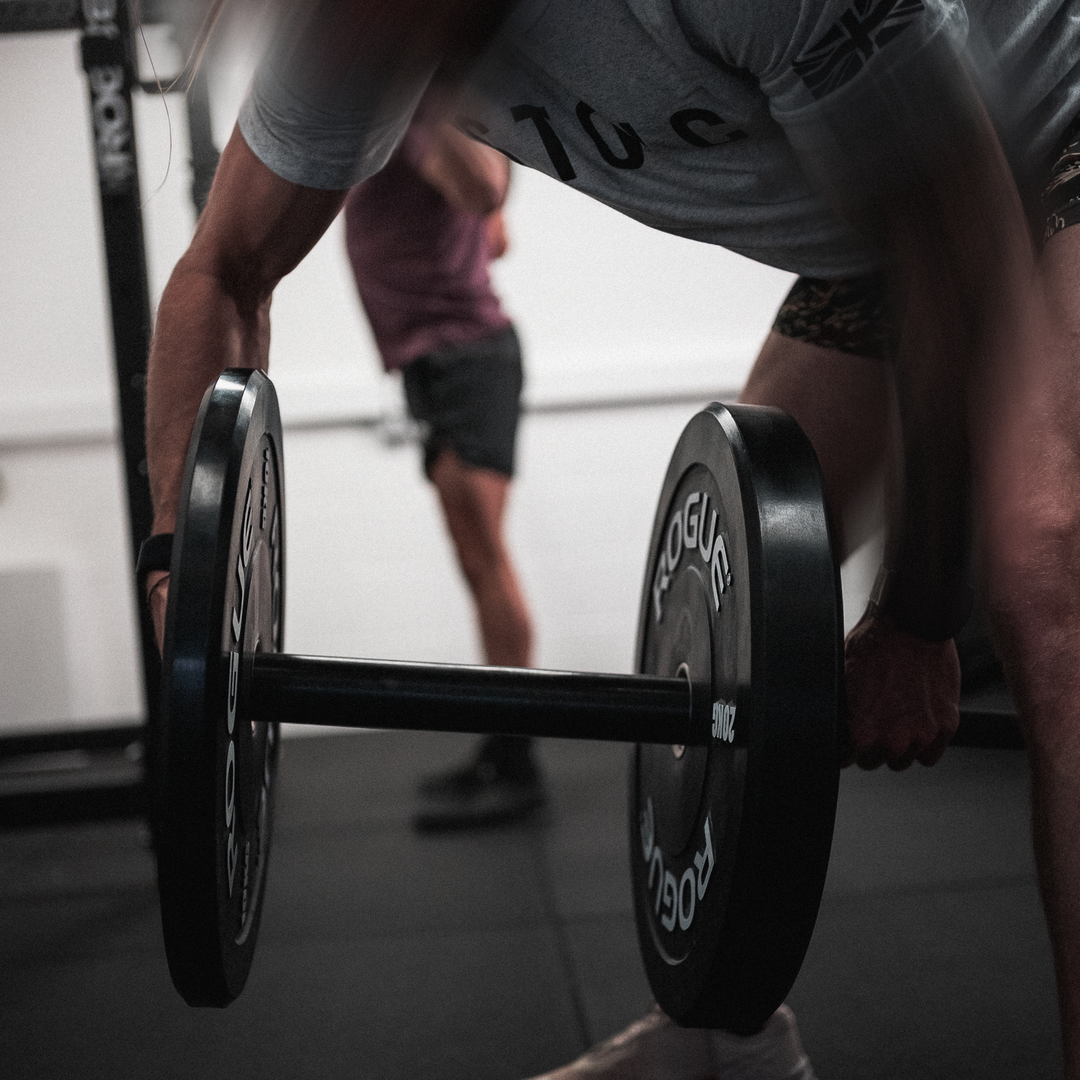3 SUPPLEMENTS FOCUSED ON IMPROVING STRENGTH

If you’re looking to get strong then assistance from supplements can help. But let’s first clarify that supplements alone do not make you stronger, nor are they a substitute for consistency in applying the following pillars of health:
1. Adequate sleep
2. An intelligent training plan
3. A nutritious diet
4. Consistency and patience
Supplements are more often than not only beneficial when these first items are in place. Without a solid foundation, there is no baseline to actually “supplement”. You’ll be buying pills and powders and essentially flushing them down the toilet. Furthermore, before exploring adding extra supplements to your regime we would suggest looking into the foundational three in our previous article.
With that said, there are three key supplements that can help dedicated individuals gain strength, along with a key one to avoid.
Creatine monohydrate
Creatine is arguably the most well-research supplement on the planet. It’s something that our bodies produce naturally, is attained in the diet via animal sources and is both physically and cognitively beneficial to health. Although some will get more benefit from creatine than others (non-meat eaters stand to benefit the most), it is a supplement will enable you to super-compensate your tissues with the material that supplies cells with the energy required for the first 5 seconds of a heavy lift.
Protein powder
Ingesting dietary protein decreases muscle breakdown and increases muscle synthesis. Around workouts, a protein supplement will enter the blood stream faster than whole food sources and will effectively support the goal of preserving and growing muscle tissue. Maintaining and building lean muscle mass is a key component of strength: you can support tissue development by consuming at least 1g or protein per pound of body weight daily and by consuming a minimum of 20g of protein every 3-4 hours.
Magnesium
Magnesium is used by every cell in the human body and plays a critical role in maintaining muscle function, energy production, bone health, insulin sensitivity and protein synthesis. Given that magnesium is also a natural relaxant and sleep aid, this is perfect to take before bed to maximise recovery. The top compounds to look for are typically magnesiums bound to chelates such as bisglycinate, malate, threonate or orotate. Try to avoid forms like magnesium citrate and oxide as these are very poorly absorbed in the body and can cause gastrointestinal distress.

Supplement to avoid: Generic ‘Testosterone Boosters’
There are tons of flashy supplements marketed to increase testosterone, but they simply don’t work. Certain compounds, like Tribulus Terrestris, can increase libido but this doesn’t equate to a rise in testosterone. Others such as ashwagandha and bulbine are being researched and show promise, but until there is a reliable body of evidence, T-boosters are a waste of money. Getting consistent, regular sleep is the ultimate testosterone booster.
In a nutshell
- Get 8+ hours of quality sleep every night, eat a diet rich in whole foods and train appropriately for your goals
- Consider supplementing with:
- Creatine
- Supplemental protein (if you aren’t meeting daily protein requirements)
- Magnesium
- Don’t waste your money on:
- Testosterone Boosters
Hammer the basics, train hard, and use supplements only when they have a proven direct impact on your specific goals.




